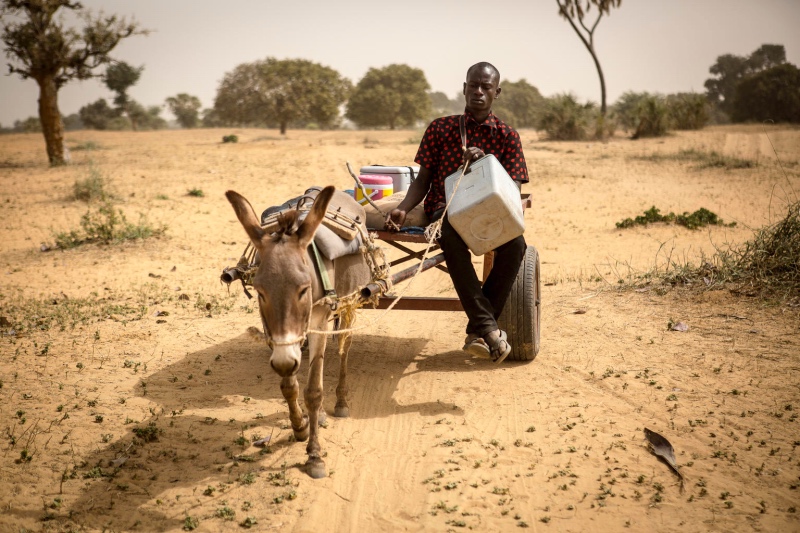Dakar, Senegal
Thomson Reuters Foundation
With spiralling ethnic violence exposing more children in Mali to fatal diseases, health workers are using donkeys and boats to deliver life-saving vaccines, charities said on Wednesday.
In the central Mopti region – where 157 people died in one attack last month – suspected measles cases rose five-fold in one year to 98 in 2018, UN children’s agency UNICEF said, due to a four-fold jump in unvaccinated children to 70,000.

Mamadou Kassé, 29, a vaccinator at the Sofara community health centre, travels by donkey cart with vaccines for miles to reach the remote Kankelena village in the Mopti region, where families are waiting with their children. PICTURE: UNICEF/Handout via Thomson Reuters Foundation.
Motorcycles, which health workers used to reach remote villages, have been banned to reduce militant activity, forcing them to use traditional means like horses, it said.
“The problem of vaccination is directly linked to the current conflict,” said Patrick Irenge, medical coordinator for the charity Medecins Sans Frontieres, which is using cars and boats as mobile clinics to reach cut off communities.
“If there is a lull in the violence, a small window that opens, we organise a vaccination campaign.”
Last month’s massacre was the deadliest to date in a conflict between Dogon hunters and Fulani herders which has displaced tens of thousands of civilians in the West African country since it escalated last year.
Pneumonia is one of the top killers of children in Mali and it can be prevented with vaccines – as can measles – but it is too dangerous for many parents to venture out with children.
“Transport is difficult because we don’t have the means to rent a vehicle or a horse cart,” said Aissata Barry, a 34-year-old mother in the village of Kankelena, about 4 kilometres from the nearest health centre in the town of Sofara.
“There are rapists on the road. That’s what we’re afraid of,” she told the Thomson Reuters Foundation by phone, adding that one of her neighbours was raped two weeks ago.
Mamadou Kasse, a local health worker who vaccinated Barry’s children, said the number of children he can reach each day has fallen since he swapped his motorbike for an eight-hour ride in a donkey cart with a cooler full of vaccines.





